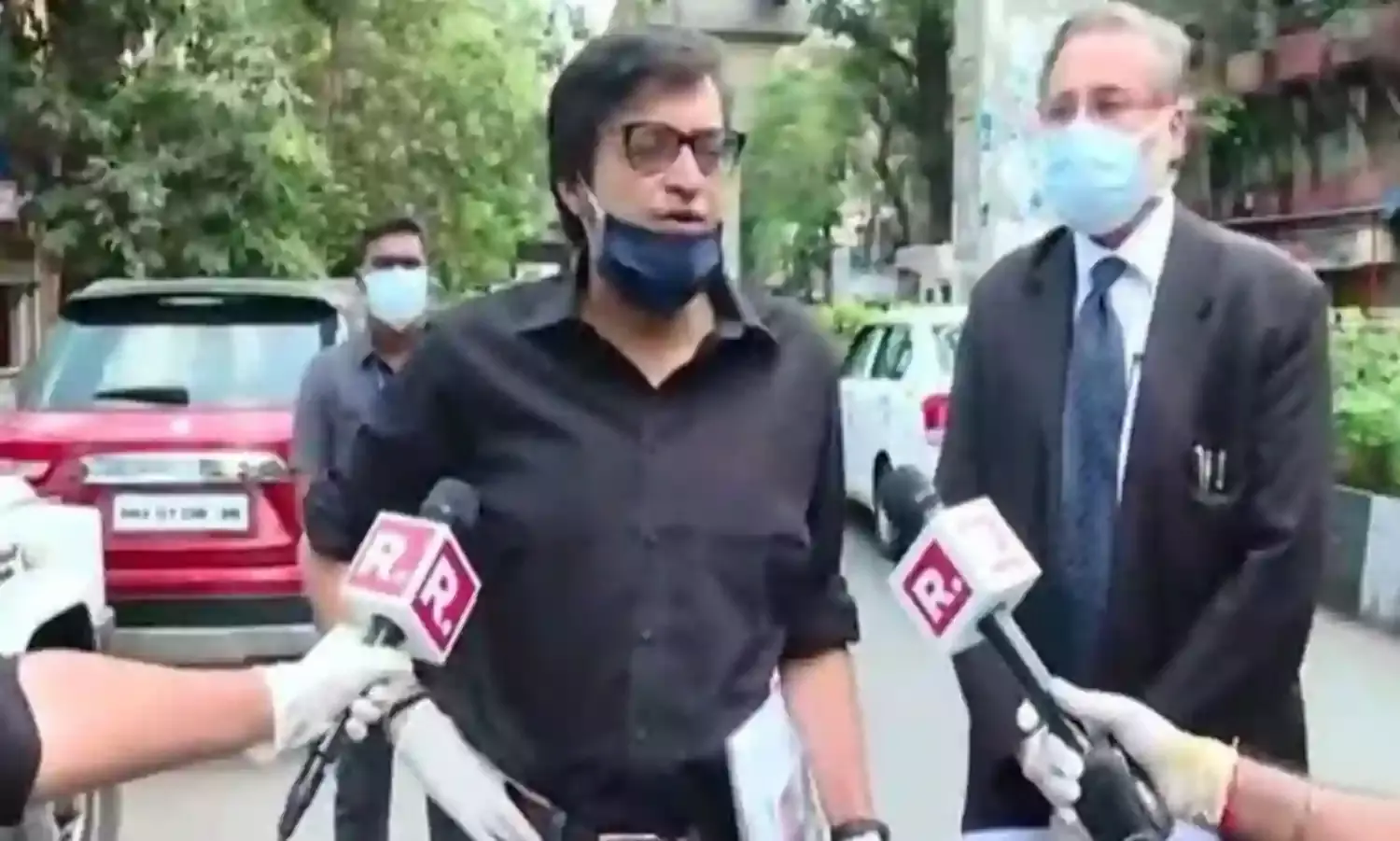'We Are In The Era of Commercial Speech, Not Free Speech': Kapil Sibal
Supreme Court on Arnab Goswami case

As Twitterati have a field day over the cases filed against anchor Arnab Goswami, and tease (sometimes a bit brutally) Zee News on coronavirus cases, the Supreme Court has rejected Goswami’s plea to transfer the cases against him from the Mumbai police to the Central Bureau of Investigation. The Court has also rejected his prayer for quashing the FIRs for alleged communal remarks.
A bench of Justices Chandrachud and MR Shah confirmed the court's earlier interim order allowing the consolidation of several FURs and their transfer to Mumbai. And has directed the Mumbai Police Commissioner to provide Goswami protection.
The case against him now will be open for investigation by the Mumbai police which at the end of it will, or might not, file a chargesheet against the anchor who signs off as the Editor in Chief of Republic TV.
Senior advocate Kapil Sibal who was arguing the case against Goswami in the courts, with Harish Salve defending him, told The Citizen that it was unfortunate that Goswami’s Republic TV is a “propaganda channel and not a news channel and his programme every day extols the virtues of the government and showers abuse at the opposition in the most irresponsible fashion.” He said that when “we do this we sometimes cross standards and go beyond justification.” And “we then get into trouble.”
Sibal, a senior Congressman and an advocate of repute, said that this happens in the context of funding by big business, which leads journalists to sensationalise issues far beyond the news.” He said the one sided projection of news, vilifying just the opposition, was a travesty of journalism.
“We are no longer in the era of free speech but are in the era of commercial speech,” Sibal said. And the necessity was now to consider how to free journalism from the shackles of big business.
The Supreme Court further observed in its ruling today, "The language, content and sequencing of complaints is identical,...Multiple complaints will have a stifling effect. The right of journalists under Article 19(1)(a) is higher and free citizens cannot exist without free media. Questions you cannot answer are better than questions you cannot question." The Bench was also clear that while journalists have the fundamental right to speak truth to power, this right was not absolute.
Goswami has been in the headlines himself on several occasions, being attacked or supported as the case might be, for allegations that as Sibal said crossed into the realm of sensationalism, often unsubstantiated. He was interrogated for 12 hours by the police, and came out appearing furious and alleging that the FIR against him was “politically motivated.” He said that he was being interrogated at the behest of Congress leader Sonia Gandhi who he kept referring to and saying he would not be silenced, and insisted that the Mumbai police bore him “ill will and malice.”
The FIR that has caused him some grief now accuses him of creating communal hatred in the wake of migrants gathering at the Bandra railway station on April 14. It says that later Goswami juxtaposed this against the picture of a mosque in the vicinity with the FIR lodged following a complaint that he had tried to instigate hatred against Muslims through his debate on television. Goswami denied these charges.
A second FIR following Goswami’s coverage of the Palghar lynching where two sahdus and teir he reportedly questioned Sonia Gandhi. Congress members filed a series of complaints against him after which the Supreme Court, on April 24, granted him protection for three weeks. On April 23 Goswami had claimed that he had been attacked by persons he insisted were Congress members. The Mumbai government also approached the court against Goswami alleging that he was “browbeating” the investigators.
Now the apex court has made it clear that one, it will not transfer the investigation to the CBI; and two, that it will not quash the FIRs. The primary Nagpur FIR will be investigated by the Mumbai police that will determine the next course of action.



